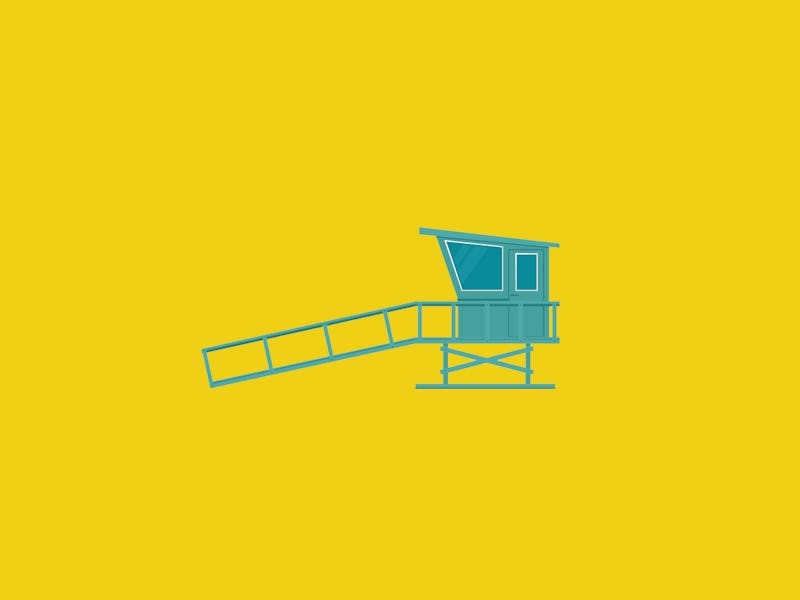A.I. could solve summer's deadliest problem
Sunburn should be the least of your worries.

Summer is in full swing and after months of staying at home, there's one destination on everyone's mind: the beach. While some socially distant and responsible beach-going may be fairly safe from Covid-19, the beach can still be an incredibly dangerous destination. Unintentional drowning, perhaps not at the top of anyone's mind amidst a global pandemic, is still a threat: from 2005-2014, the CDC reported an average of 3,536 fatal unintentional drownings per year, with a special danger for younger swimmers. But an Israeli startup plans to make beaches safer than ever this summer with its AI lifeguard.
"In the case of drowning, every second is critical."
The AI is called Sightbit and uses computer vision and image processing neural networks to help human lifeguards keep a closer watch on dangerous waters. While human lifeguards may fail to see swimmers in distress through low-quality binoculars (or simply because they were looking away,) Sightbit is designed to be ever vigilant and can be programmed to spot dangers like riptides, struggling swimmers, or unattended children.
In summer 2020, the technology was rolled out on Palmachim National Park in Israel, making this five-mile-long beach the first "smart beach" of its kind. S, the company has plans to implement its AI lifeguard on U.S. and European beaches as well.
The local pool or a public beach may seem like a low-risk activity, but according to the World Health Organization (WHO,), drowning is the third deadliest accident worldwide, accounting for over 300,000 deaths annually. These deaths can be the result of either human error (overestimating your swimming ability or dangerous rough-housing) or simply dangerous water conditions (riptides or powerful waves). Add in factors like swimming or boating under the influence of alcohol, health conditions like seizures, or just a plain lack of swimming ability, and the risks start to pile up.
Lifeguards are trained to identify these issues and intervene before harm comes to the swimmer, but that's not always possible.
Sightbit CEO, Netanel Eliav, says in a statement that the company's AI lifeguard is designed to work in conjunction with human lifeguards to ensure better surveillance of a beach or pool.
"Sightbit is, in essence, an AI lifeguard and superior to humans which aren’t optimized for tracking hundreds of swimmers with or without binoculars,” says BGU alum Netanel Eliav, Sightbit chief executive officer. “In the case of drowning, every second is critical. Our system acts as an additional lifeguard by flagging threats to swimmers and providing an earlier warning so they can act more quickly and save lives.”
A crowded beach like this may seem alien amidst coronavirus. But as the beaches refill, dangers will lurk.
Unlike their more agile human counterparts, these AI lifeguards are stationary poles with black tinted security cameras attached where a lightbulb might go. The designated area of surveillance (e.g. a poolside but not the pool changing area) can be chosen by the lifeguard team and the AI will transmit real-time data as it surveys its assigned area.
Using computer vision and machine learning, the AI can identify worrisome behavior, like a swimmer in distress, and alert the lifeguard on duty with an alarm and an enhanced image of the event.
This can save the lifeguard critical, life-saving minutes searching for the swimmer in a crowd.
In addition to making predictions about potential drownings, the AI can also alert lifeguards to other parameterized events, such as dangerous currents or vehicles in the water. The AI lifeguard can also be left to monitor beaches even after a lifeguard has packed up for the day.
Because this AI is designed to help lifeguards do their jobs more efficiently and effectively, Sightbit claims that it can save beach and pool operators up to 40 percent in operating costs.
Sightbit is still a young startup, launching only at the beginning of 2019, but after implementing its system on the Israel beach this summer, it plans to soon move further West to Europe and even the U.S.